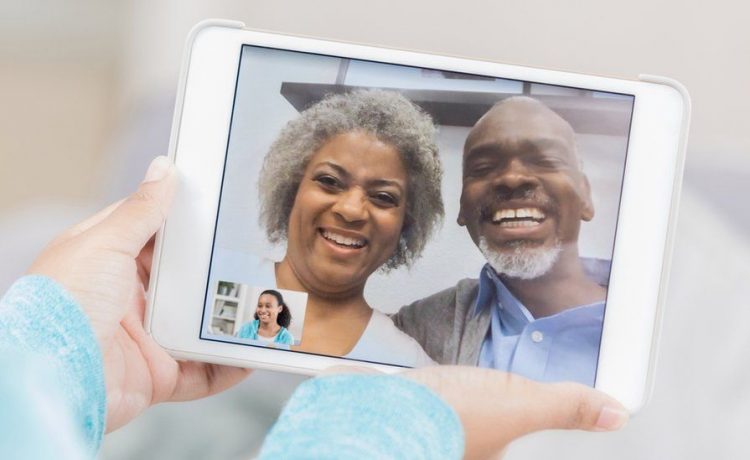Video calling is a relatively new feature in today’s technology that allows you to interact with others through live videos. Instead of calling someone and putting the phone up to your ear, you can use the video option to see the person during the conversation. Video calls can be used for various things, such as demonstrating how something is done, showing the person an item you recently bought or seeing their reaction to exciting news.
Seniors may benefit from video calling, especially during the Coronavirus pandemic. Considering seniors are at high risk for the virus, many have stayed home more than they did before. Social distancing has prevented large gatherings and changed the way you can interact with others. The lack of interaction can negatively affect your mental health.
Prevent loneliness and depression
According to the Kaiser Family Foundation (KFF), during July of 2020, close to 46% of older adults age 65 and older said the stress related to the pandemic had negatively impacted their mental health. Rates of depression and anxiety in older adults have increased since the pandemic started. One out of four older adults has reported having anxiety or depression during most weeks in the pandemic. There has been considerable research connecting loneliness to health conditions like dementia, stroke, suicide, and premature death.
Social isolation due to the shutdowns and social distancing during the pandemic can increase loneliness. The option of video calling may help diminish the feeling of loneliness by allowing those stuck at home to see their family members and friends virtually.
Stay connected
Video calling is a way for seniors to stay connected to family and friends they cannot see or meet. A smartphone or tablet is easy to pass around to multiple people during a video call, so you can talk to and see an entire household within one call. During the shutdowns, you may go days without seeing a single person. Video calling not only lets you hear someone’s voice but also allows you to see them and what they are doing. You can set up a Zoom meeting with your friends or family to have a game night. You can also continue with your book club meetings or a virtual cooking class.
Video calls help keep your daily or weekly activities going and make life seem normal during the pandemic. It may be an adjustment at first, but it will help you stay connected to everyone and everything you did before the pandemic.
Milestones and achievements
Not only can some routine activities continue virtually through video calls, but more important events such as holidays, birthdays, and achievements can also be done through video calls. Whether your family or friends are in another city, state, or country, you don’t have to miss out on holidays or birthdays. You can set up a video call and still watch them open gifts, and you can celebrate together.
Social distancing may prevent you from watching your grandkid walk at graduation, perform in a pageant, or play in a state championship game. However, you can use video calling to witness these milestones and achievements still. You would be able to watch them open their birthday gifts that you sent. Watching everything virtually can give you the feeling of being there in person.
Conclusion
The pandemic has impacted the lives and daily routines of many people. It changed the way seniors could be present for important events and milestones for their family members and friends. Smartphone technology and social media are alternative ways for seniors to be present during these challenging times and reduce the feeling of loneliness. Video calling, in particular, allows seniors to be there in the moment and physically see what is going on.

